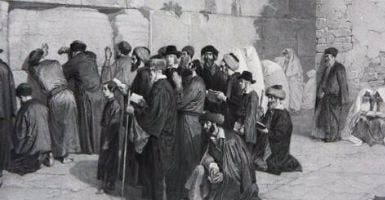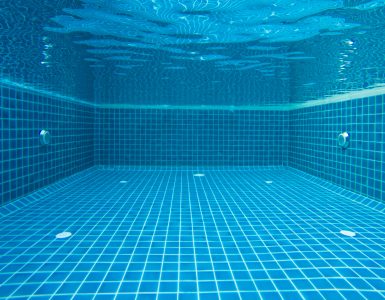“So that your generations will know that I caused the B’nei Yisrael to live in Sukkos when I took them out of the land of Mitzrayim…” (Vayikra 23:43)
It is well-known that Hilchos Shabbos are set aside for Pikuach Nefesh. In this essay (and the following one), we will review the fascinating Halachic discussion of a person who is stranded in the desert and does not know what day is Shabbos.
The Shulchan Aruch discusses two such cases (O.C. 344):
- A person lost in a desert who does not know what day it is and has forgotten what day he left home and how many days he has been traveling. Obviously, he has no means to determine when Shabbos is.
- A person who forgot on which day of the week he left home but does remember how many days it has been since he set out on his journey.
We will focus on the first scenario.
A person who is traveling in the desert and does not know when Shabbos is should count seven days from when he noticed that he had forgotten and sanctify the seventh day with Kiddush and Havdala. If he has something to subsist on. it is forbidden to perform any Melachos until he has finished all [the provisions] he has. Then he shall perform Melacha every day – even on the day that he sanctifies – [but] just enough for his Parnasa. He may travel every day – even on the day that he sanctifies.
In other words, since he has forgotten what day of the week it is, each day might be Shabbos. He may not rely on the “Rov” (the overwhelming probability – 6/7) that any given day is not Shabbos and thus treat it as a weekday, because Shabbos is “Kavua” – it is a regular and fixed part of the week. In these circumstances, we treat the Safek as “Mechtza Al Mechtza” (a 50/50 chance) and do not rely on the Rov (see the Magen Avraham ibid. 1). He may therefore not perform more Melachos than absolutely necessary for his Parnasa (i.e., his basic necessities) that day. Moreover, he may not perform Melacha for the sake of the following day’s Parnasa.
(The obligation to count seven days and sanctify the seventh day with Kiddush and Havdala is an enactment of the Rabbanan so that “Shabbos will not be forgotten to him”, or as a stringency to ensure that he won’t forget Shabbos again – see the Rishonim to Shabbos 69b. He is obligated to keep the Mitzvos of Shabbos specifically on that day, however, the Issur of performing Melacha applies every day, as stated above.)
These Halachos arise from the comments of the Rishonim in Maseches Shabbos (69b). The Gemara initially suggests that in the above scenario, the person would be forbidden from performing any Melacha on the seventh day of his count. This is immediately challenged with the question: “And on that day he should die?!” In other words, if he cannot perform Melacha he will be unable to survive – surely Pikuach Nefesh overrides Shabbos!
The Rishonim are troubled by the Gemara’s question. The man will not die from fasting for one day – why do we permit him to perform Melachos to procure food and other basic necessities? We must say that since the previous days were also “Safek Shabbos”, he was prohibited from working on those days except for the bare minimum needed for each individual day. He was not permitted to perform any Melachos for the needs of the following day. But if we were to assume that he can safely fast on one day each week, then he should surely be able to work less (and eat less) on each of the previous days as well. It must be that this is not the case; rather, on each day he is permitted (and obligated) to perform Melachos for the needs of that day that were a matter of Pikuach Nefesh.
The Rishonim note that this is also implied by the Yerushalmi that states that he must be concerned that every day is Shabbos and only perform Melachos “Kedei Kiyum Nefesh (only what is needed to keep himself alive).”
However, there is a Machlokes haPoskim regarding a person who estimates that he will be able to fast on one day and not perform Melachos, or that he can do so for one day each week. Given that this is a “permanent” situation[1] is he obligated to make this effort? The Tosefes Shabbos[2] holds that he is obligated to do so; since he will not be in a state of Pikuach Nefesh he may not perform Melachos needlessly.
However, the Bigdei Yesha[3] holds that he is not obligated as “Ein laDavar Sof“ (there will be no end to the matter). If he can fast for one day, he can likely fast for a day and a half, or perhaps a little more. Ultimately, he will endanger his life by the constant attempts to fast, thus the Chachamim do not obligate him to make the attempt and he may perform Melachos every day as needed for that day. Additionally, since traversing the desert is a place of Sakana and requires a great deal of physical strength, he should ensure that he sustains himself since “Safek Nefashos l’Hakel – In a case of possible Sakana we are lenient”.
Based on the above, the Poskim outline the extent to which a person may violate Shabbos in these circumstances. According to the Beis Yosef, only a poor person who cannot purchase food from fellow travelers may violate Melachos to procure food. Somebody with money must purchase food, and only when his funds are depleted may he perform Melachos.
The Taz discusses another question (ibid. 1): “It therefore appears that if he has something to eat – such as bread – it is forbidden to cook food for him as there is no concern of Pikuach Nefesh.”
At first glance, the Taz’s comment seems obvious; if he already has something to eat, of course we may not violate Shabbos to cook for him! However, as is common in matters of Pikuach Nefesh, what may seem obvious is not always taken for granted by the Poskim. Though the consensus of the Poskim is to concur with the Taz (see the Elya Raba, Tosefes Shabbos, and Chayei Adam 21:1), it is apparent that they all felt that his ruling was something of a Chidush. Why?
It seems likely that the Poskim had the following concern: Since we treat this situation as expected to continue for a long period, obtaining his nutrition only from bread constitutes a potential Sakana. The Taz, therefore, saw fit to point out that this concern does not meet the threshold of actual Pikuach Nefesh. (In fact, the Pesach haD’vir[4] 344:9 cites the Sefer Nezirus Shimshon[5] who holds that relying only on bread for nutrition would constitute a Sakana in some cases. Each case must be judged on its merits; in some instances, it would be permitted to cook rather than eat the bread in his possession, although the Pesach haD’vir disagrees with this ruling.)
Returning to the basic Halacha, a person stranded in a desert who does not know what day Shabbos is cannot perform Melachos except to sustain himself as necessary. He may not perform Melachos for the sake of his sustenance of the following day. Assumedly, this is true even if he will certainly need to perform Melachos on the following day and he could just as easily perform twice as many Melachos today and thus avoid any performance of Melachos on the following day.
This raises an important question. Each day of the week is Safek Shabbos Safek Chol, but one of the days is actually Shabbos. If we instruct him to perform Melachos every day for his sustenance, he will certainly desecrate Shabbos, though it will be permissible due to Pikuach Nefesh. Why do we not instruct him instead to perform as many Melachos as possible on one day and avoid Melacha for the rest of the week? This will certainly decrease the chances of Chilul Shabbos! This question is posed by the Biur Halacha (O.C. 344, s.v. Metzumtemes). His answer reveals a fundamental principle of Pikuach Nefesh:
One may answer: Now that he acts [each day only] for the sake of his sustenance it is not called Chilul Shabbos as it is relevant, each day, to Pikuach Nefesh. Therefore, this is a better [arrangement] than working for a day or two for more than is needed for his sustenance [at that moment] thus possibly desecrating Shabbos electively.[6]
In other words, according to the Biur Halacha, by performing a Melacha each day, he is not considered to be desecrating Shabbos as it is Pikuach Nefesh. However, if he does more than necessary – even with the [explicit] intent of performing Melachos on fewer days overall – he is considered “possibly desecrating Shabbos electively”.
This contention is puzzling. He knows that he will certainly need to perform these Melachos in the coming days – he has no natural way to escape his plight. If so, it is already known that the Melachos that he will need to perform in the coming days are a matter of Pikuach Nefesh. Why then can he not perform them today on account of Pikuach Nefesh? What difference is there between performing them today and performing them tomorrow?
There is a principle known as “Pikuach Nefesh Asidi – future Pikuach Nefesh” that when it is highly likely that danger will occur in the future or if the cause of the Sakana is already present, we consider it a matter of current Pikuach Nefesh. There is no principle forbidding one from desecrating Shabbos for the sake of Pikuach Nefesh on a future Shabbos. However, one may not desecrate Shabbos for the sake of Pikuach Nefesh on a weekday when one could perform the Melachos on the weekday instead [without any increased risk due to the delay.]
The distinction must be that there is a difference between a certain situation and a doubtful one. To the person in the desert, each day is Safek Shabbos Safek Chol, such that it is equally possible that today is Shabbos and tomorrow is a weekday or vice-versa. Since that is a possibility, he may not perform any Melachos for the sake of the following day. Though there are other possibilities (for example, today may be a weekday and tomorrow may be Shabbos – or that both days are weekdays – in which case it would certainly be better to perform all the Melachos today!), it is proper to reckon each day individually and only perform the minimum number of Melachos that are necessary for Pikuach Nefesh.
To be continued…
[1] [Editor’s note: Even though the expectation is that he will eventually be rescued, but for the sake of this discussion it is considered a “permanent” situation.]
[2] R’ Refoel Chaim Meisels (also known as R’ Refoel from Horachov, ~1696-~1777), Av Beis Din of Horachov and later Pritzk.
[3] Written by the author of the Shel”a (Shnei Luchos haBris), R’ Yeshaya haLevi Horowitz (1558-1630).
[4] R’ Chaim Binyomin Pontremoli of Izmir (d. 1873)
[5] R’ Shimshon Bloch of Hamburg (d. 1738)
[6] “We can learn from this that a soldier who needs to perform a Melacha d’Oraisa [by order of] the government, and he is able to perform it [instead] on Erev Shabbos, is certainly obligated to do so, so that he does not need to desecrate Shabbos on the following day, as we explained in Sha’ar haTziyun. However, if he did not have time all day [on Erev Shabbos] until Bein haShemashos, it is better for him to perform the Melacha on the following day, even though it will be Vadai (certain) Shabbos, for then he will have no choice but to do it and it will not constitute an Issur. However, [if he would perform the Melacha during Bein haShemashos], he would be possibly desecrating Shabbos of his own volition.
However, we can dismiss this proof. In our case [of the desert], it is a question of two separate days, whereas here it is a question of one single day. What difference is there between the beginning of the 24-hour period and the middle of it? If anything, it is better to perform the Melacha earlier (during Bein haShemashos) for then he may possibly be saved from Chilul Shabbos (as Bein haShemashos may not actually be Shabbos). This matter requires further study.”















Add comment